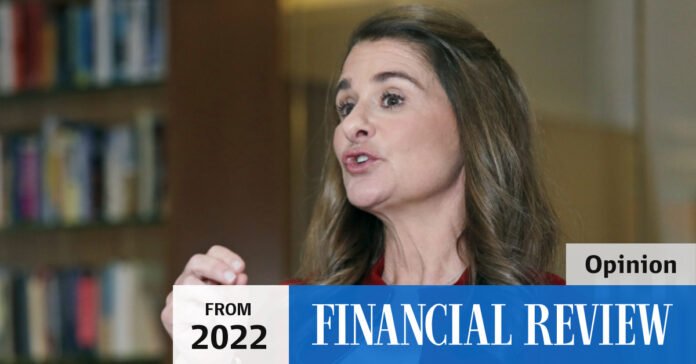The Case for Financial Empowerment in Achieving Gender Equality
In a world where gender inequality persists across various sectors, American philanthropist Melinda Gates has emerged as a powerful advocate for women’s rights. Her assertion that enhancing women’s access to financial tools is crucial in addressing global gender inequality resonates deeply, especially in light of a recent United Nations report. This report reveals a staggering projection: women may have to wait 286 years before achieving worldwide gender equality. Let’s delve into the implications of this statement and explore how financial empowerment can serve as a catalyst for change.
Understanding the Gender Gap
The gender gap is a multifaceted issue that spans economic, social, and political dimensions. Women around the globe often face barriers that limit their opportunities, from wage disparities to lack of representation in leadership roles. The UN report highlights these challenges, emphasizing that systemic inequalities are deeply entrenched in many societies. By understanding the roots of this gap, we can better appreciate the importance of targeted interventions, particularly in financial sectors.
The Role of Financial Tools
Financial tools encompass a wide range of resources, including banking services, credit access, investment opportunities, and financial education. For many women, these tools are not just beneficial; they are essential for achieving independence and stability. Melinda Gates argues that providing women with these resources can lead to transformative changes in their lives and communities. When women have control over their finances, they can invest in education, healthcare, and entrepreneurship, creating a ripple effect that benefits entire families and societies.
Barriers to Access
Despite the clear benefits, many women still face significant barriers to accessing financial tools. Cultural norms, lack of education, and discriminatory practices often prevent women from engaging fully in the financial system. For instance, in many regions, women may require permission from male relatives to open a bank account or secure a loan. These obstacles not only hinder individual progress but also stifle economic growth on a larger scale. Addressing these barriers is crucial for creating an environment where women can thrive financially.
The Impact of Financial Literacy
Financial literacy plays a pivotal role in empowering women. Understanding how to manage money, invest wisely, and navigate financial systems can dramatically alter a woman’s economic trajectory. Programs aimed at enhancing financial literacy among women have shown promising results. By equipping women with the knowledge and skills they need, we can help them make informed decisions that lead to greater financial independence and security.
Case Studies of Success
Several initiatives around the world illustrate the potential of financial empowerment. For example, microfinance programs have successfully provided small loans to women entrepreneurs, enabling them to start businesses and generate income. In countries like Bangladesh, these programs have not only improved women’s financial status but have also fostered community development. Such success stories highlight the importance of targeted financial interventions and the positive outcomes they can yield.
The Role of Technology
In today’s digital age, technology offers unprecedented opportunities for financial inclusion. Mobile banking and digital payment platforms have made it easier for women to access financial services, even in remote areas. These innovations can help bridge the gap, allowing women to manage their finances more effectively and independently. As technology continues to evolve, it holds the promise of further democratizing access to financial tools, making it essential to harness these advancements for the benefit of women worldwide.
Collaborative Efforts for Change
Achieving gender equality is not solely the responsibility of women; it requires a collective effort from governments, organizations, and individuals. Collaborative initiatives that bring together various stakeholders can amplify the impact of financial empowerment programs. By working together, we can create policies that support women’s access to financial tools and dismantle the systemic barriers that perpetuate inequality.
The Path Forward
While the UN report paints a bleak picture of the timeline for achieving gender equality, it also serves as a call to action. Melinda Gates’ emphasis on financial empowerment is a crucial part of the solution. By prioritizing women’s access to financial tools, we can take significant strides toward closing the gender gap. The journey may be long, but with concerted efforts and innovative solutions, we can pave the way for a more equitable future.

